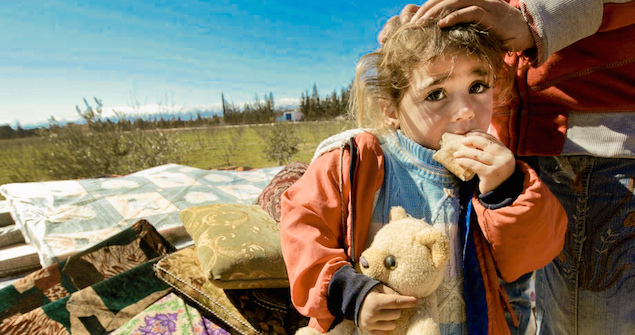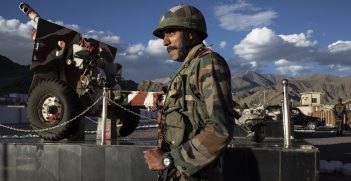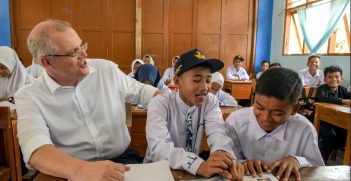Combating Statelessness

Statelessness persists despite the universal right to nationality
Article 15 of the Universal Declaration of Human Rights declares that everyone has a right to nationality and that states have an international obligation to prevent statelessness. Without this right, individuals suffer myriad problems ranging from restricted freedom of movement to difficulties accessing social services. Despite affecting an estimated 12 million people, statelessness remains largely ignored in international affairs. That it persists in the 21st century is anachronistic; although all children have the right to registration at birth, universal birth registration remains unrealised. Discriminatory national legislation and gaps within nationality laws persist in many countries. Moreover, the two international treaties specifically dedicated to the issue of statelessness — the 1954 Convention Relating to the Status of Stateless Persons and the 1961 Convention on the Reduction of Statelessness — remain under-ratified and under-implemented.
Eradicating statelessness
The First Global Forum on Statelessness was held recently in The Hague, discussing the issue from a range of perspectives. Volker Türk, the UNHCR’s director of international protection, says that eradicating statelessness in the 21st century is imperative. Despite recent significant achievements in the fight to end statelessness, it remains a reality for millions of people worldwide. In many respects, these individuals fall into a void of non-existence; their lack of recognition amounts to a manifest injustice, an affront to equality and human dignity.
Nils Muižnieks, European commissioner for human rights, calls on nations to collect comprehensive data in order to build an accurate picture of statelessness and identify effective interventions. Muižnieks places particular emphasis on children, identifying them as especially vulnerable. Dedicated to promoting the rights of children, he uses the UN Convention on the Rights of the Child (CRC) as a platform for advocacy. According to Muižnieks, the best solution is for states to grant children (who would otherwise be stateless) nationality upon birth, as this would be consistent with internationally agreed standards.
Specific situations
No region of the world is immune to statelessness. Whilst common themes exist across the regions, each situation has its own geo-political and demographic peculiarities.
The crisis in Syria has received a lot of international attention; approximately half of Syria’s population is now displaced and at least 3 million refugees have fled the country. Yet a protection gap exists regarding birth registration as, according to UNHCR officials, 77% of Syrian refugee births in Lebanon are unregistered, thus leaving children without proof of parentage, age or nationality status. A particular problem in this context is the discriminatory nature of Syrian law, which requires children to receive nationality paternally; this is at odds with reality as women now head over half of Syrian refugee households. UNHCR officials describe this situation as a recipe for a statelessness epidemic. The Syrian case is illustrative of the cross-cutting nature of statelessness and highlights the urgent need for a holistic approach in addressing this issue.
In Asia the problem stretches across Malaysia, the Philippines, Indonesia, Thailand and Myanmar; it is inter-generational in nature and requires intensive mapping to develop effective solutions. ASEAN could play a critical role. Its committees focusing on the rights of migrant workers, women and children each have an important part to play.
New challenges
New causes of statelessness have been identified, including international surrogacy. This practice remains unregulated at the international level, exacerbated by nationality and citizenship laws varying from state to state. Frustratingly, it is a cause of statelessness that is preventable through greater coherence between national laws dealing with surrogacy, nationality and citizenship. Further, at a very practical level, prior to embarking on an international surrogacy arrangement, “commissioning parents” can take a critical step themselves by verifying that a child born through international surrogacy will be entitled to the nationality they hold, or to that of the country of the child’s birth. Currently, such checks do not happen systematically – the child’s nationality and status is an issue that only receives attention after birth. It is a problem requiring urgent resolution and currently, in many cases, is necessitating ad-hoc solutions which appear to be at odds with national policies and legislation. The Permanent Bureau of the Hague Conference on Private International Law is currently examining the viability of a convention relating to the parentage and legal status issues relating to international surrogacy. However, international consensus may be difficult to achieve on such a morally, ethically and legally vexed issue.
Potential solutions
Irene Khan, director-general of the International Development Law Organisation, says the effective use of law can resolve the problem of statelessness. However, statelessness routinely pushes people outside the ambit of the rule of law and states’ failures to respect, uphold and implement domestic and international law are often key causes of statelessness. Strong international organisations promoting the rule of law are therefore essential to establishing the conditions for statelessness to be eradicated.
Khan highlights the gap between accession and implementation, arguing that if the international community is serious about protecting stateless people and preventing statelessness, action must be taken at the national level to strengthen constitutional safeguards and citizenship laws. Highlighting the intersection with national counter-terrorism strategies, Khan argues that denationalisation must not be used as a tool (as proposed by a number of states regarding their nationals fighting for the so-called Islamic State) as it will likely only aggravate the situation.
Human problem
The international community must recognise statelessness as a human, inter-generational problem with huge political and emotive aspects. Therefore, Khan promotes measures that empower stateless people as agents of their own destiny. To do this, the international community must enable and support these individuals to overcome disenfranchisement and marginalisation in order to gain recognition and equality. Empowerment must be recognised as a protection tool, with stateless people at the centre of eradication efforts. Emphasising the need for innovative solutions, Khan also warns those who ignore statelessness that today’s statelessness problem might become tomorrow’s refugee crisis.
Where to now?
While the impact of statelessness on communities, families and individuals cannot be underestimated, it has long been a neglected issue. For the UNHCR’s new campaign to eradicate statelessness by 2024 to succeed, urgent action is required to improve existing approaches and develop new ones.
Political commitment to both resolve and avoid statelessness crises is vital. Multiple methods must be utilised to achieve these goals, such as empowering stateless people and strengthening international multi-stakeholder partnerships. In September 2014, the Institute on Statelessness and Inclusion was established. Founded by three statelessness experts, the institute is an independent non-profit organisation that aims to lead a response to statelessness and exclusion that is interdisciplinary and integrated. This new initiative is a reminder of the work still to be done and the approaches needed to rid the international landscape of a problem that should not exist in the 21st century.
Claire Achmad is a barrister and solicitor of the High Court of New Zealand and is currently a PhD candidate in the Department of Child Rights, School of Law, Leiden University. Achmad addressed the First Global Forum on Statelessness in The Hague on the topic of statelessness and the rights of the child in international commercial surrogacy, made possible by the New Zealand Netherlands Foundation. She can be contacted at c.i.achmad@umail.leidenuniv.nl or @ClaireAchmad on Twitter.
An extended version of this article was originally published in the January/February edition of the New Zealand International Review. It is republished with permission.





